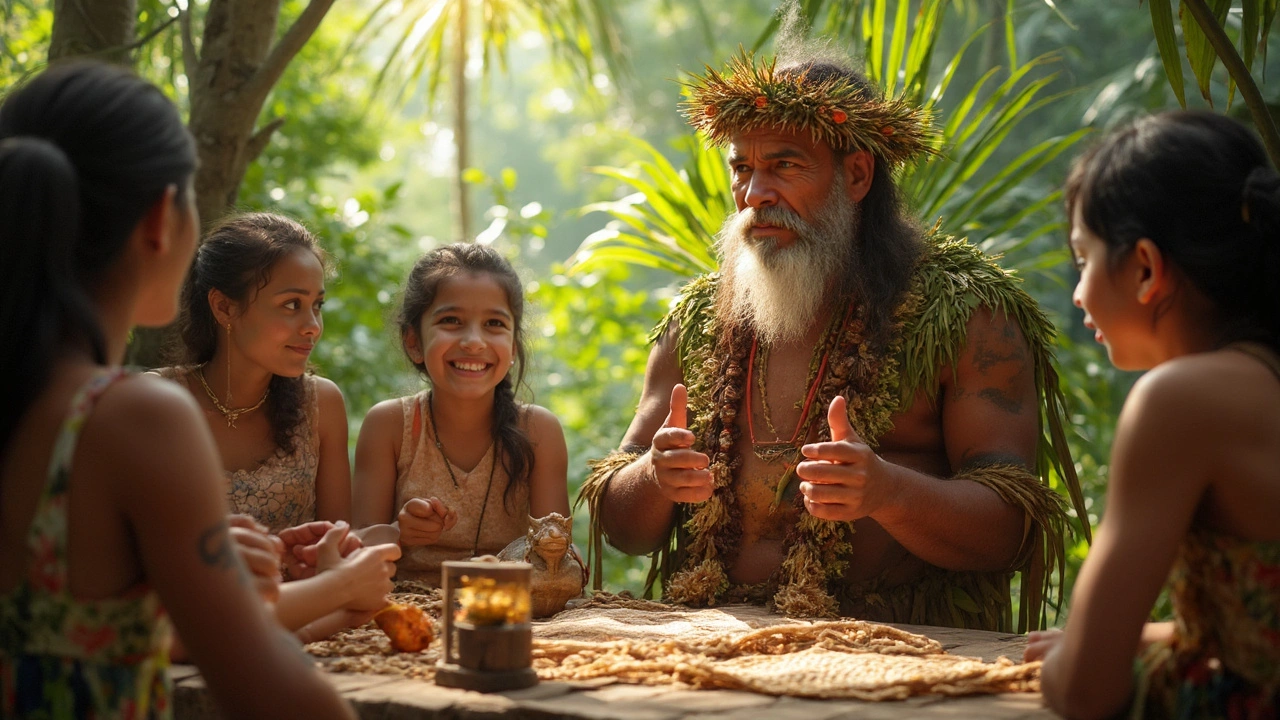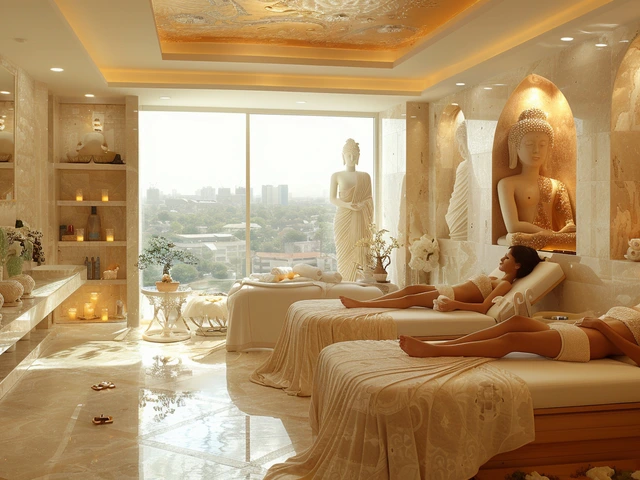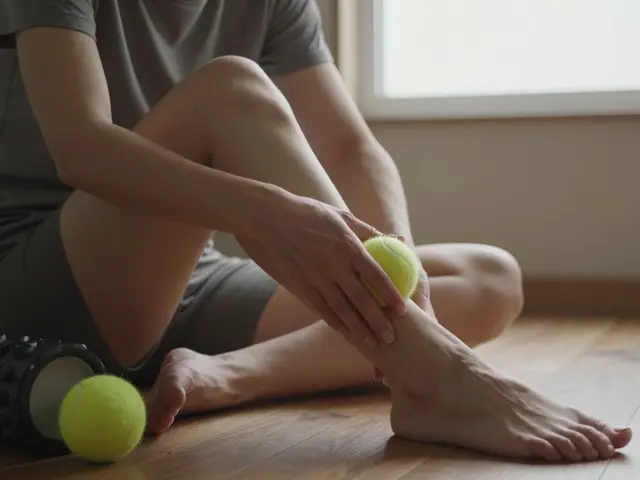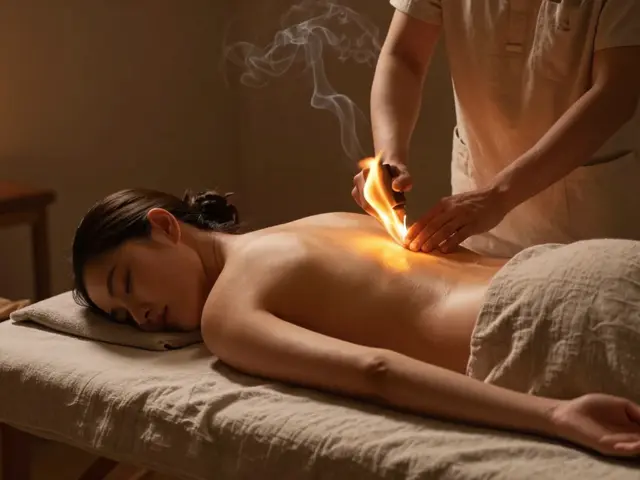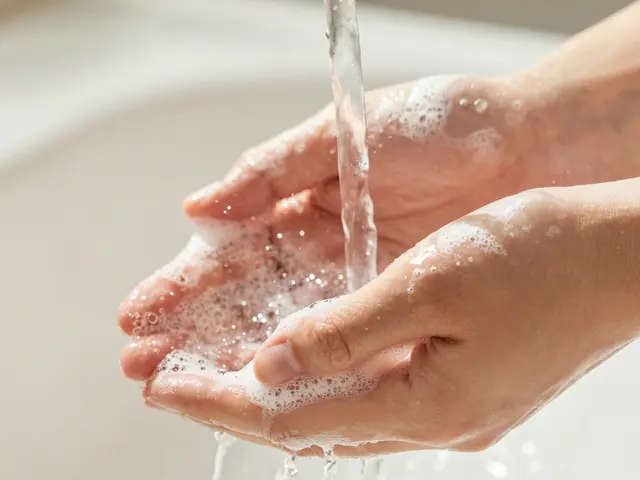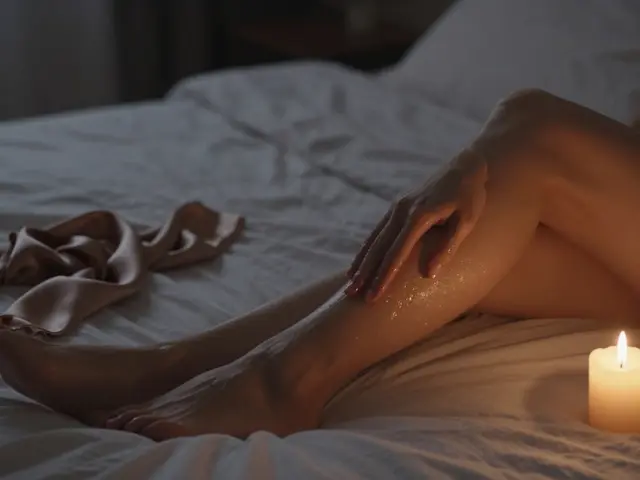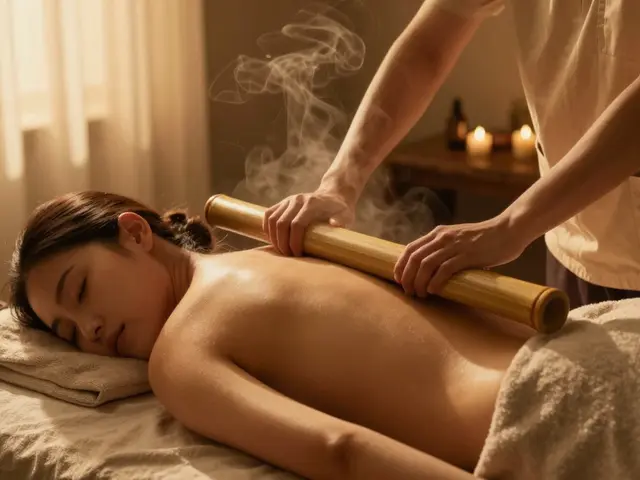Most people hear 'kahuna' and just think of a surfer or maybe the phrase ‘big kahuna’ from a movie. But the real story is much deeper—and honestly, way more interesting. 'Kahuna' isn’t a one-size-fits-all word for one kind of person. In old Hawaii, this was the name for experts: healers, priests, navigators, builders, even those who could connect with the unseen world.
If you grew up in Portsmouth like me, the closest thing you might relate to is that one person in your family everyone turns to for advice, whether it’s about a tricky recipe or sorting out family squabbles. In Hawaiian society, the kahuna was that person, except usually with years of demanding training and a big dose of respect.
- Kahuna: More Than Just a Title
- Roots in Hawaiian Life
- Spiritual Roles and Daily Impact
- Modern Misconceptions and Pop Culture
- Learning from Kahuna Wisdom Today
Kahuna: More Than Just a Title
The word kahuna actually means 'expert' or 'master' in Hawaiian. It's not just about surfing or spiritual healing—there were more than 40 recognized types of kahuna, each with a specialty. Some were priests, some healed with herbs, others built canoes or acted as lawyers for local disputes. The idea was simple: if you wanted the best in town, you went looking for the kahuna in that field.
To be called a kahuna, you had to go through patience-testing training. Kids didn't just decide one day they wanted to be a kahuna. They were picked because of talent or family tradition. Often, training lasted for years—sometimes decades—with strict rules for what you could or couldn't do. Messing up could mean you weren't allowed to be called 'kahuna' at all.
Here's how the whole structure broke down:
- Kahuna lapaʻau: Expert in herbal healing and traditional medicine
- Kahuna pule: Master of prayers and religious ceremonies
- Kahuna kuhikuhi puʻuone: Expert architect, especially for sacred sites
- Kahuna kilokilo: Astrologer who predicted seasons and crop success
This group shaped every part of local life, from farming and medicine to dealing with natural disasters. In fact, more than a hundred years ago, U.S. missionaries described the influence of kahuna as being a 'social superpower,' sometimes even more trusted than chiefs or royals.
| Type | Specialty |
|---|---|
| Kahuna lapaʻau | Healer/Herbalist |
| Kahuna pule | Priest/Prayer leader |
| Kahuna kuhikuhi puʻuone | Architect |
| Kahuna kilokilo | Astrologer |
So next time someone tosses around the term 'big kahuna,' remember—this wasn't just a nickname. It was a badge of respect and a sign that you really knew your stuff. If our work or craft got half as much respect as the old Hawaiian kahuna, we’d all be walking a little taller.
Roots in Hawaiian Life
Going back to early Hawaiian society, the word kahuna pops up everywhere. It wasn’t just about spirituality. There were over 40 types—everything from medical kahuna (kahuna lapaʻau) to experts in canoe-making. Each kahuna held real power because their skills kept daily life running smoothly.
The respect for the kahuna didn’t just happen out of nowhere. Kids who showed promise were chosen early and basically started an apprenticeship that could last years or even decades. It wasn’t only about learning practical skills—think herbal medicine or building temples—but also getting the right mindset. People trusted these experts for both life-and-death problems and everyday questions.
If you look at Hawaiian laws from way back, you’ll find rules outlining what a kahuna could and couldn’t do. Breaking those rules could mean banishment or even worse. Kahunas were the link between the ordinary and the sacred, called on for blessing a new house, preparing someone for a journey, or fighting off an illness.
| Kahuna Type | Main Skillset |
|---|---|
| kahuna lapaʻau | Healing and herbal medicine |
| kahuna pule | Spiritual prayers and rituals |
| kahuna kalai waʻa | Canoe-making and woodworking |
| kahuna kuhikuhi puʻuone | Temple planning and architecture |
One thing gets clear the more you dig: the word kahuna wasn’t tossed around lightly. That’s why, even now, Hawaiians get a bit prickly when outsiders use the term as a joke or a brand name. Learning about the roots of the word helps make sense of why it still matters so much today—especially to those who actually live with its history.
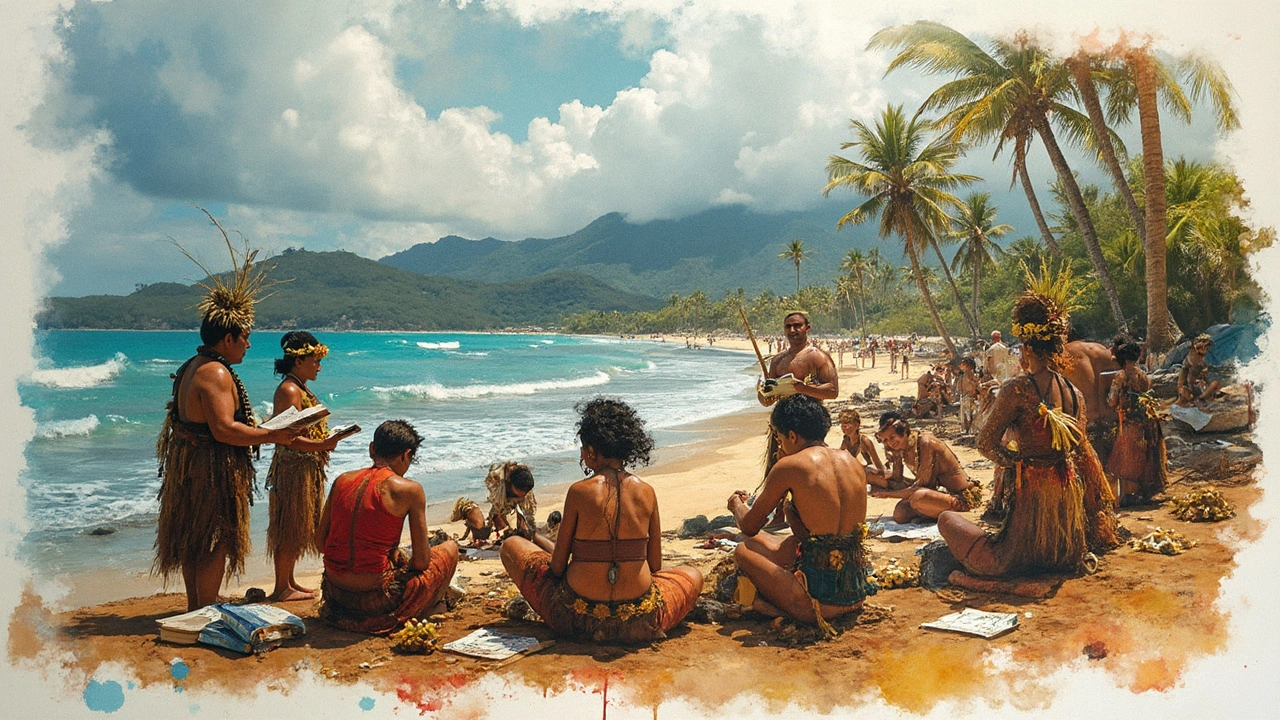
Spiritual Roles and Daily Impact
If you asked someone in Hawaii a few hundred years ago who the real problem-solvers were, they'd probably mention the kahuna. These folks weren’t just spiritual leaders. Instead, their roles crossed almost every part of life—from personal health to community decisions. There were kahunas for healing (called kahuna lapaʻau), for reading the weather, for safe travels, and even for fixing tough disputes. It’s no stretch to say kahunas were the backbone of traditional Hawaiian life.
Let’s talk daily impact. A simple village day could see a kahuna blessing a fishing boat at sunrise, treating someone’s fever by noon, and offering spiritual guidance by sunset. Their advice often shaped everything from farming schedules to how buildings lined up. When people got sick, families didn’t just reach for a potion—they went to their local spiritual leader, who might use chants, herbs, massage, and old-school know-how passed down through generations.
The trust in kahunas was so deep that chiefs, or "ali’i," often called them in before making any big decisions. The idea was, if you were about to do something that’d affect the whole community, you wanted a kahuna’s take—just to make sure you didn’t mess up your spiritual mojo or anger any gods.
Here’s a quick look at a few common types of kahuna, just to clear up that "one size fits all" idea:
- Kahuna lapaʻau: Practiced healing using native plants and traditional techniques.
- Kahuna pule: Led religious ceremonies, did chants, and kept rituals on track.
- Kahuna kuhikuhi puʻuone: Acted like master architects, picking the best spots and orientation for buildings.
- Kahuna kilo hoku: Watched the stars for navigation, crucial for ocean crossings.
According to historians, some Hawaiian communities could have up to a dozen different kahunas, each with a distinct role. That shows just how woven these experts were into local life. If you think about how people today visit GPs, therapists, priests, or even weather forecasters, well, a small Hawaiian town did all that through their local kahunas.
If you’re ever traveling in Hawaii and spot a ceremony or blessing, odds are, it’s a tradition with deep kahuna roots. Their spiritual approach wasn’t about some mysterious "magic," but a still-respected system that looked at health, luck, and harmony. Pretty practical, really.
Modern Misconceptions and Pop Culture
The word kahuna gets tossed around way too loosely outside Hawaii. Most folks just picture a laid-back surfer dude, especially thanks to old Hollywood movies and cheesy adverts. Remember the ‘big kahuna’ burger from Pulp Fiction? That’s a prime example—totally funny, but not even close to what a real kahuna is.
If you Google kahuna in England, you’ll get everything from wetsuits to life-coaching ads. In pop culture, it's become this catch-all phrase for ‘boss’ or ‘expert’ in anything, with the spiritual and cultural roots barely mentioned. TV shows from the 1960s, like Gidget or Hawaiian Eye, kept the ‘big kahuna’ stereotype alive, turning it into a cartoonish character rather than a respected community figure.
These days, companies sometimes use the word to sell all sorts of services—from weight loss retreats to surf lessons. Most of the time, there’s zero real connection to Hawaiian heritage. It’s a bit like calling every British person a ‘royal’ just because they were born here—it misses the point.
All this matters because using kahuna carelessly erases the actual meaning and the role these experts played. In real Hawaiian culture, becoming a kahuna meant years of learning. For healers, it could mean remembering hundreds of herbal combinations. For priests, it meant mastering chants and rituals.
Just to give you an idea of how diluted the term has become, check out some stats:
| Context | Meaning in Pop Culture | Original Hawaiian Meaning |
|---|---|---|
| Movies (Pulp Fiction, Surf's Up) | Cool boss, legendary figure | Master expert, healer, priest |
| Business names (UK/US) | Life coach, business expert | Respected professional in Hawaiian society |
| TV and Cartoons | Silly or mystical character | Cultural leader, knowledge keeper |
If you really want to honor the word, use it for people with deep expertise and understanding, not just as a goofy nickname. There’s nothing wrong with pop culture slang, but some words deserve more respect, especially when they carry this much history. Give a nod to its roots the next time you hear ‘kahuna’ used as a marketing gimmick—it’s more than just a catchy phrase.
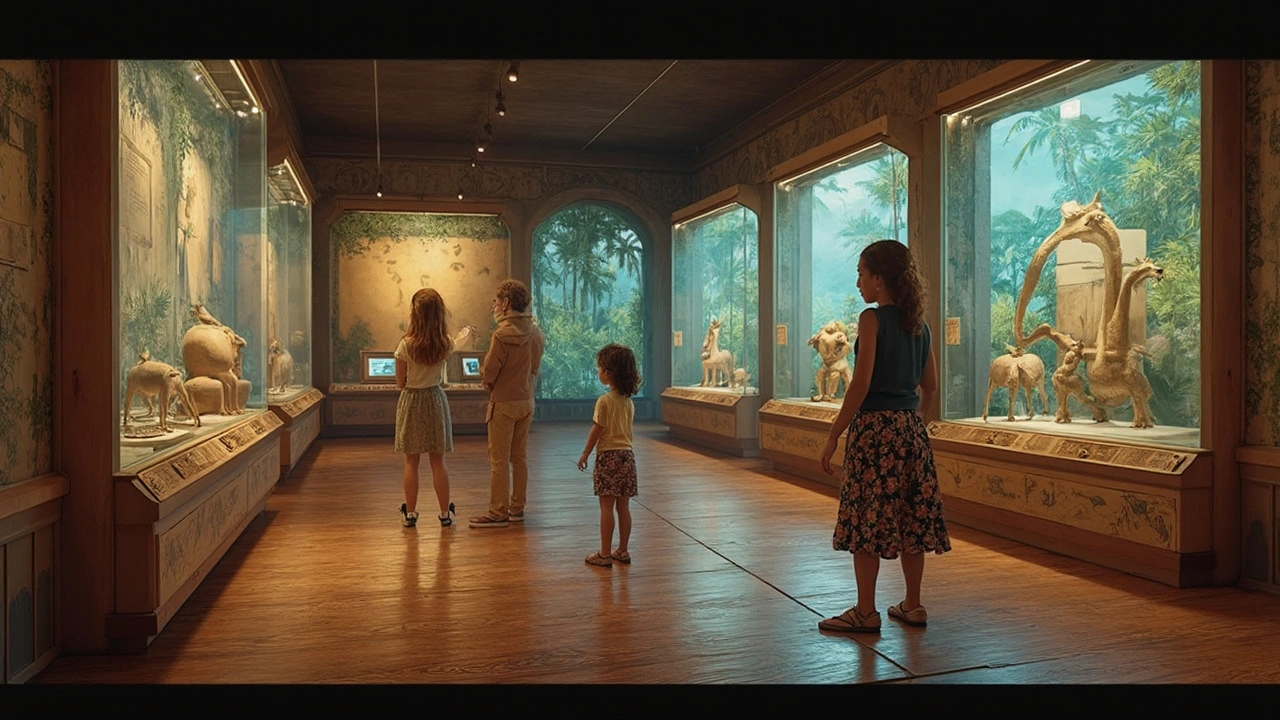
Learning from Kahuna Wisdom Today
When people talk about kahuna now, it’s often with a half-smile and a shrug, but there’s some solid wisdom you can actually use in daily life. Traditional kahunas weren’t just spiritual figures. They had hands-on skills—think herbal healing, conflict resolution, and ways to keep a community running smoothly. Even medical researchers in Hawaii have documented over 120 types of plant remedies used by kahuna lapaʻau, who were specialized healers.
Much of what kahunas taught was about paying attention—to the land, the weather, the people around you. While you might not be weaving coconut fibers or performing blessings in Portsmouth (unless you fancy giving it a try), the core idea is super practical: slow down, watch what’s going on, and learn from experience. One example? The kahuna’s approach to health wasn't just about treating illness; it was about preventing it. They believed in a balanced diet, exercise through daily living, and regular check-ins on mental wellbeing—stuff that still makes sense now.
Want to bring a bit of kahuna thinking into your routine? Here are a few practical tips:
- Take notice of your surroundings. A kahuna would spend time every morning observing nature, reading small signs for the weather or the mood of the group.
- Use natural remedies when you can. It doesn’t hurt to learn about local herbs or simple teas for minor issues, just like a kahuna lapaʻau would.
- Talk things through. Disputes were often settled by calm discussion with a neutral party—think family meetings, not just online rants.
- Stay open to learning. True kahunas always looked for knowledge, whether from the oldest member of the village or from personal mistakes.
Fun fact: a recent survey in Hawaii showed over 40% of residents have tried at least one traditional kahuna remedy, proving the wisdom is still alive today—even in a modern, fast-paced world.
So next time you hear the word kahuna, remember: it’s not just about mystic rituals or island legends. It’s about skills, balance, and a willingness to keep learning as life throws new challenges your way.

